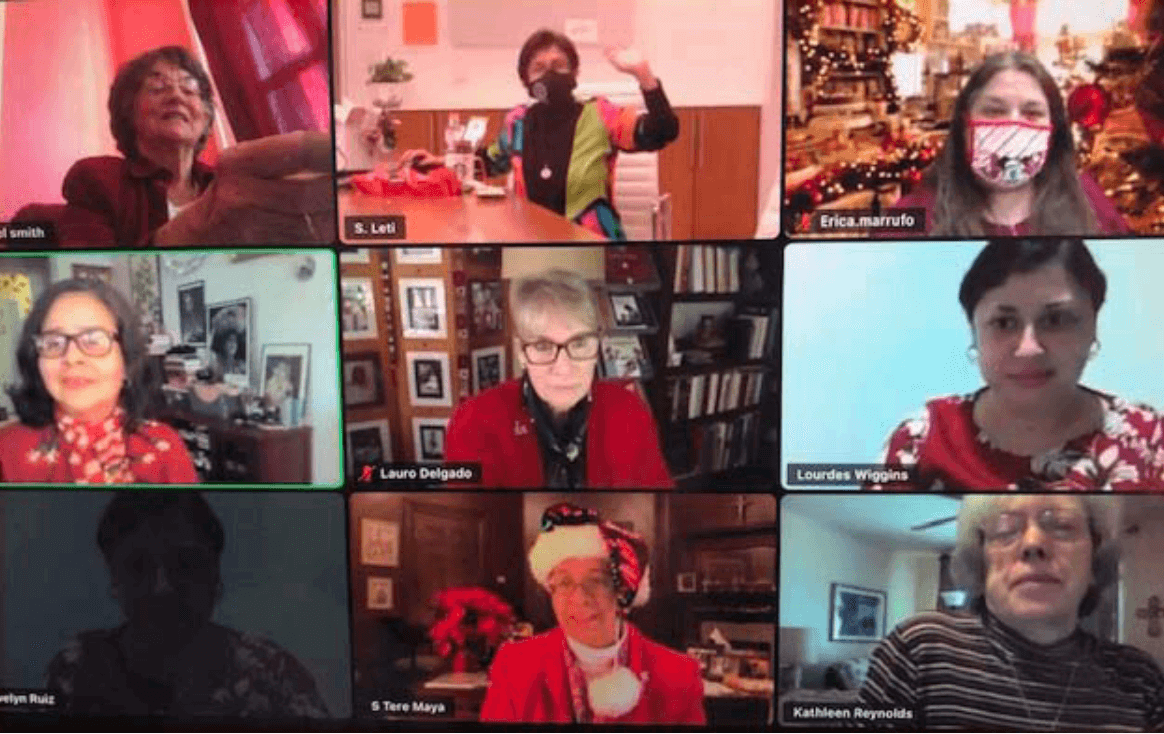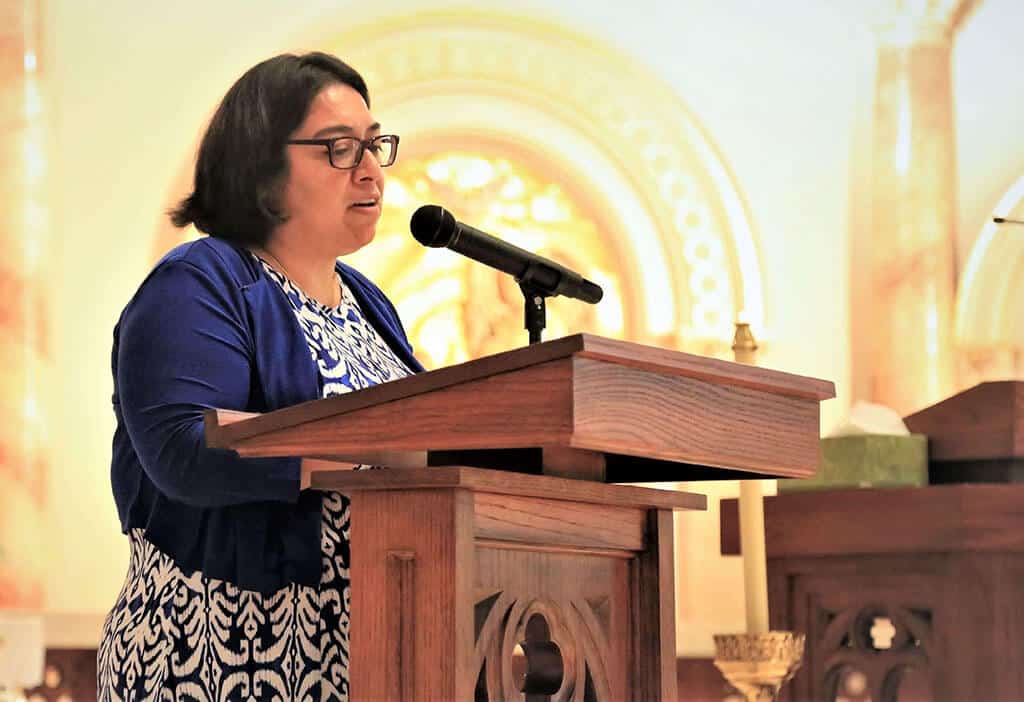FRENCH ORIGINS
“The life of this saintly pioneer bishop should interest us for two reasons. His holiness is imitable. It developed in the face of difficulties… he had to do so much with such meager resources; his flock was dispersed over a wide area and included a large number of fallen-aways…In his almost ceaseless visitations of his vast territory, traveled on foot or on horseback, spent a night in a treetop with the waters of a surging flood within inches of his feet, was captured several times by marauding Comanches, lived through droughts and cholera epidemics…his holiness found expression mostly in the labor of the ministry.” –Thus writes Bishop Dubuis’ biographer L.V. Jacks in 1946.
A native of Teche, situated about ten miles from Roanne, France, Claude Marie was born on March 8, 1817 to Antoinette and Francois Dubuis. The fifth child in a family of eight, he was named after his maternal uncle Abbe Claude Dubost and maternal aunt Marie.
From early childhood, Claude worked with his siblings on the family farm and received very little schooling, due to the lack of a resident teacher in his village; families were required to try home schooling where possible. His mother, with whom Claude was very close, is credited with providing his religious formation and later his uncle Abbe Claude took him to live at his residence, where he worked at odd jobs and studied Latin in preparation for the preparatory seminary, which he entered in 1833. At that time the seminary numbered 400 students.
Blessed with a cheerful disposition, Claude adjusted well and was received well by the students; however the teachers soon discovered his lack of schooling and inability to keep abreast of his present studies. His lack of Greek was also a factor and little by little, Claude’s discouragement with failure led him to ask his uncle Claude to take him home. Both Abbe Claude and Headmaster, aware of a potential vocation, hesitated to interrupt his program of studies. However, in 1834, after spending six months in academic discouragement, Claude made a personal decision to return to his own home in Teche, where his parents welcomed him back, without indicating regrets. His mother’s prayers continued to accompany her son as he adjusted and moved forward.
The harsh reality of survival back home, without any special work skills, required Claude to become a day laborer for the next few years; his prayer life turned into a long reflection on his desires for priesthood and the reality of his academic failures. In due course, God intervened, and Claude was ready to approach his parents with his plan:
“If I cannot be a priest, I will consecrate myself to God; I will be a Marist Brother, I will go to the foreign missions, and I will teach the natives the name of Christ.”
His joyful parents referred to Uncle Claude to advise/assist their son. Aware of his nephew’s scholastic needs, the Abbe provided a personal language tutor for Claude who proved successful in grounding him in the elements of Greek and Latin and thus in 1836, the ardent Claude entered the minor seminary of St. Jodard, located close to the river Loire.
What a surprise for Claude to be named ‘top of his class’ in Rhetoric. Moving on to the next course of studies, Claude entered anew the seminary L’Argentiere where he was regarded by a classmate as “an excellent student, one of the foremost in the class; a spirit very honest, a loyal heart, nature lively and energetic, as impetuous for work as for play….ingenious and strong, he was one of our best players, and in all his relations with his companions he showed such nobility and energy.”
Little by little, Claude mastered the required studies and in 1840 at age twenty-three, he entered the major seminary of Lyons called St. Irenaeus, which was known for its scholarship, rigor of its courses and rigid discipline. Claude accepted the rigors, maintaining his cheerfulness. Here he dealt with men of world-wide experience whose lectures helped broaden his thinking. The seminary became a school of spiritual experience and of preparation for a long life in priestly ministry.
Receiving the “Tonsure” after his first year assured Claude that he was moving closer to his goal. His second year found him assigned as Infirmarian where he cheerfully cared for the sick. It so happened that he became very sick himself at the close of that year and his doctors feared for his life. Claude, who knew so well how to approach God in prayer, begged for his life that he might serve him in the mission fields as a priest. From the depths of his aching heart he said:
“Lord, you are the master of life and death. I am gravely sick.
Yet you have the power to heal me.
Hear my prayer that I may be able to work for the salvation of souls.
If you will save me, I vow to spend ten years in the missions to carry your name
to the non-believers.”
Contrary to the medical opinions, Claude recovered his health and was ordained a priest on June 1, 1844 in Lyons, France--the day had dawned that he had longed for throughout his life. On this memorable day, he and his mother rejoiced together in the realization that “nothing is impossible for God.”
About the same time, it happened that French Bishop Odin of Texas was in France on a recruiting mission for his vast diocese, so Father Claude and his family had an opportunity to meet with him to receive the background information needed to consider the possibility of their son serving in the Texas missions. Father Claude decided to follow Bishop Odin to Texas.
With a few companions, Father Claude sailed to New Orleans in 1846, then on to a Seminary in Missouri for English Language study before arriving in Galveston, Texas. Bishop Odin assigned him to Castroville, outside San Antonio to take care of the German and Alsatian speaking colonists living there and in the surrounding area.
HIGHLIGHTS OF BISHOP CLAUDE M. DUBUIS’ MINISTRY:
1847: First Pastor of St. Louis Catholic Church, Castroville, Texas
- Buildings: Small Church and crude hut and unresponsive colonists.
- Language spoken: German, Alsatian, Spanish
- Built own house with assistance from Rev. Matthew Chazelle
- Opened School for Eighty (80) local Students
- Developed the Cemetery/placed cross on adjoining hill (Cross Hill )
1847: death of Rev. Chazelle to Typhus; Arrival of Rev. E. Domenech
Pastoral Duties include: Castroville, D’Hanis, Fredericksburg & New Braunfels
1850: Second Church built.
1852: Rev. Claude Dubuis assigned to San Antonio & appointed Vicar General
Bishop Dubuis: tireless worker built churches and promoted Catholic Faith throughout Texas
1862: Rev. Claude Dubuis Consecrated 2nd Bishop of Texas and 1st Bishop of Galveston in a festive ceremony in his home city of Lyons, accompanied by his parents, relatives and local friends from former days in Teche and Lyons. Bishop Dubuis recruited priests and religious from Europe to serve in Texas; his clergy numbered forty (40) priests
1866: Bishop Dubuis recruited the first Sisters of Charity of the Incarnate Word for healthcare in Texas; recruits trained in Lyons IWBS Convent; new foundation set up in Galveston.
March, 1869: Galveston CCVI community numbered eight (8); Bishop sends three Sisters to open a healthcare ministry in San Antonio; the first Catholic hospital in San Antonio was established.
March 29, 1869: Bishop Dubuis officially erected the San Antonio CCVI Mission as an independent Congregation under the leadership of Mother Madeleine Chollet as Superioress and Bishop Dubuis as Founder.
October 21, 1869: New CCVI San Antonio Community, with the assistance of Bishop Dubuis, move into rebuilt home: Santa Rosa Infirmary, advertising their hospital in the San Antonio Daily Herald.
July 12, 1881: ill health forced Bishop Dubuis to resign his post as Bishop of Galveston and to return to France.
June 6, 1894: Bishop Dubuis, together with clergy and laity, celebrated his Golden Jubilee of Priesthood and Thirty-Six years of Episcopal Consecration in the Church of Lyons, France.
May 21, 1895: Bishop Dubuis, after a prolonged illness, dies and is buried in his native parish at Coutouvre, France.
It was said that more than forty (40) French newspapers and periodicals noted the passing of the great Missioner while the American journals outdid the French in words of praise–a true testimony to the affection which his Texan friends retained for him.

Episcopus
A close associate and friend of the Bishop during his Texas ministry was heard to observe:
“This is a truly cultivated man. He speaks French, German, English, Spanish and Latin, with ease and grace, with facility and even elegance. He knows philosophy; he knows the human heart; he can converse with Popes and Counts and be at home with peasants; he is shrewd, kind, and hard-working. Look at his hands. They are the hands of a laborer Acquaintance with greatness enabled him to estimate it at its true worth…”
Original Source: L.V. Jacks: Claude Dubuis, Obisbo de Galveston.
On the header: Bishop Claude Marie Dubuis, Founder.









0 Comments